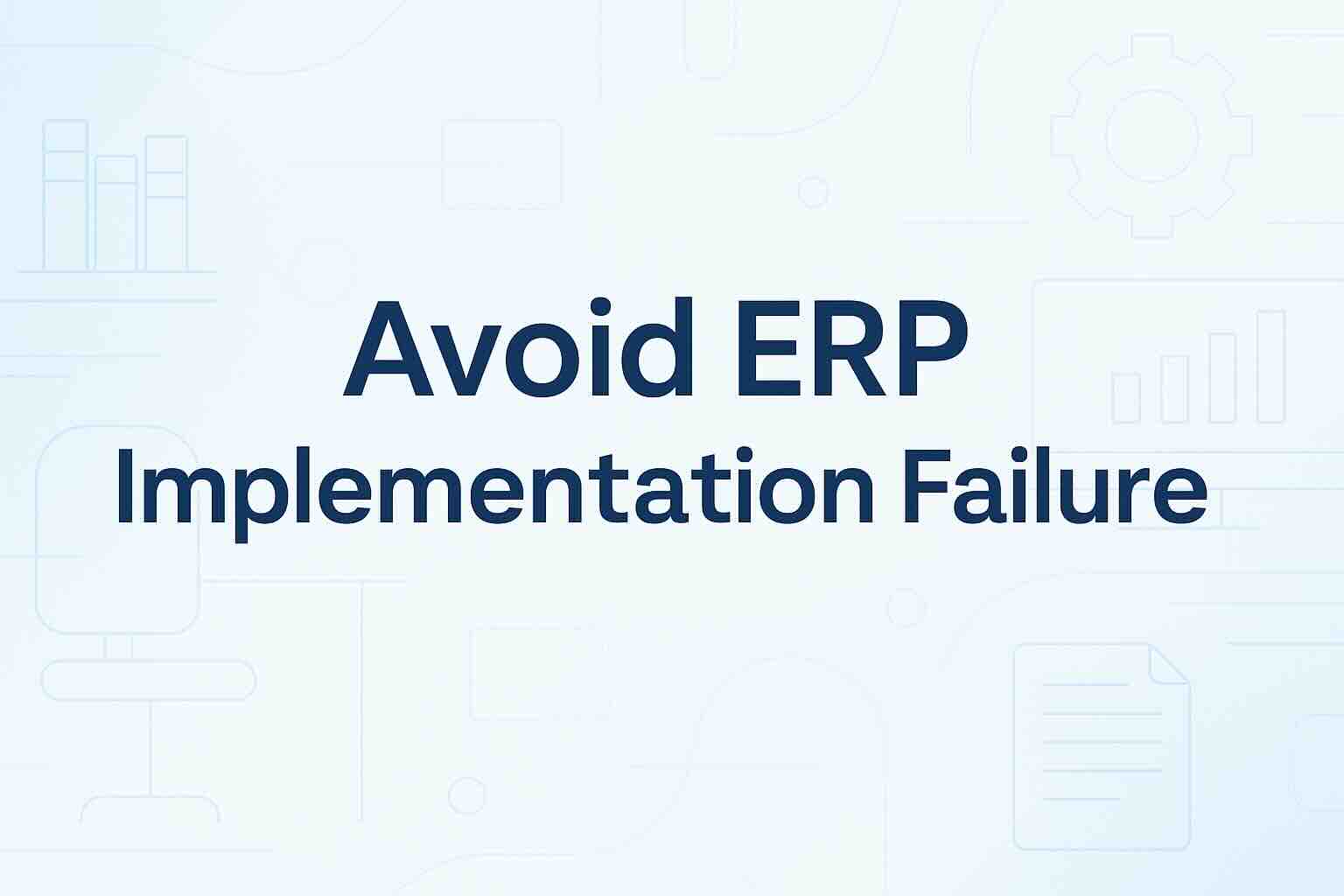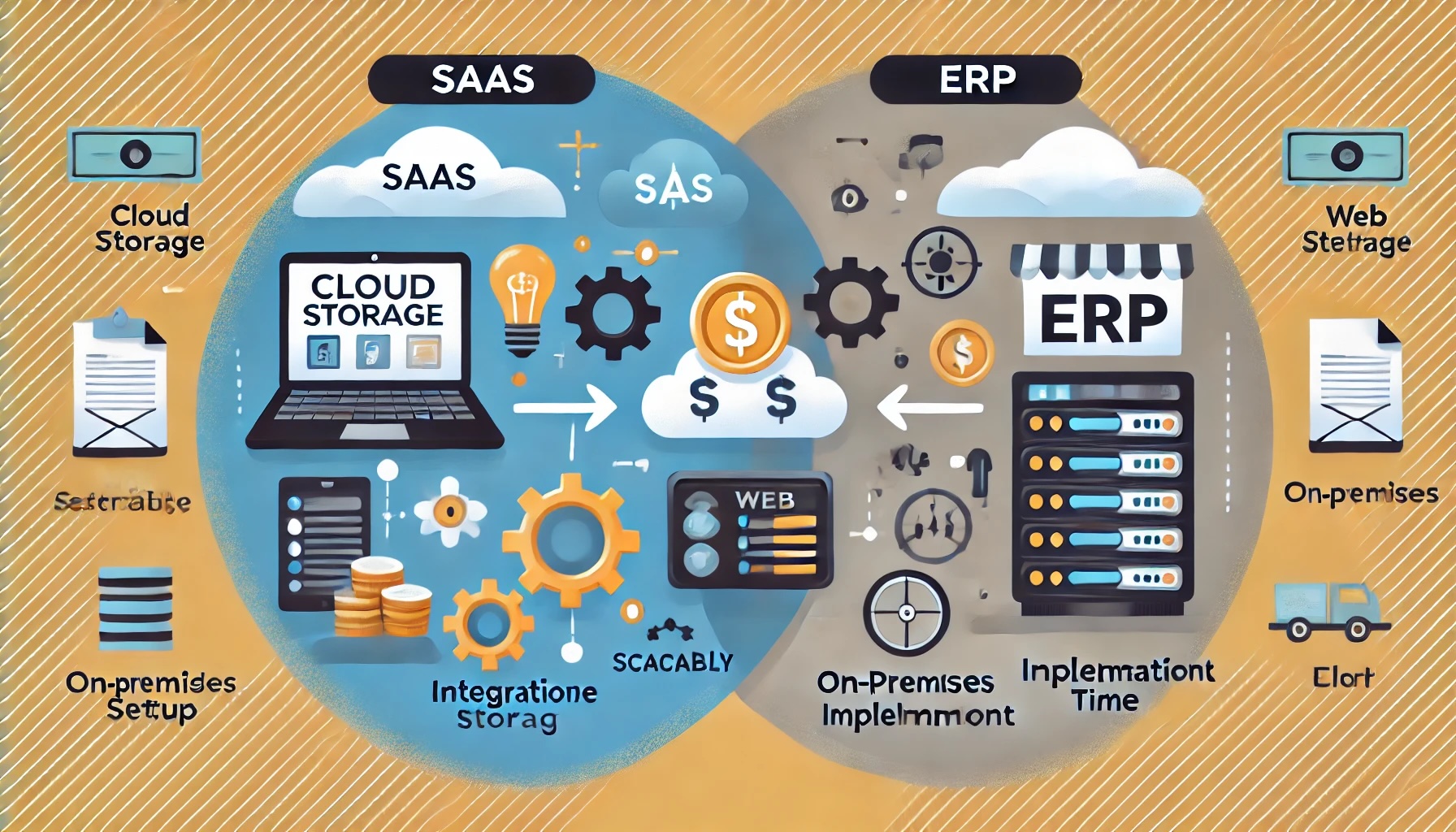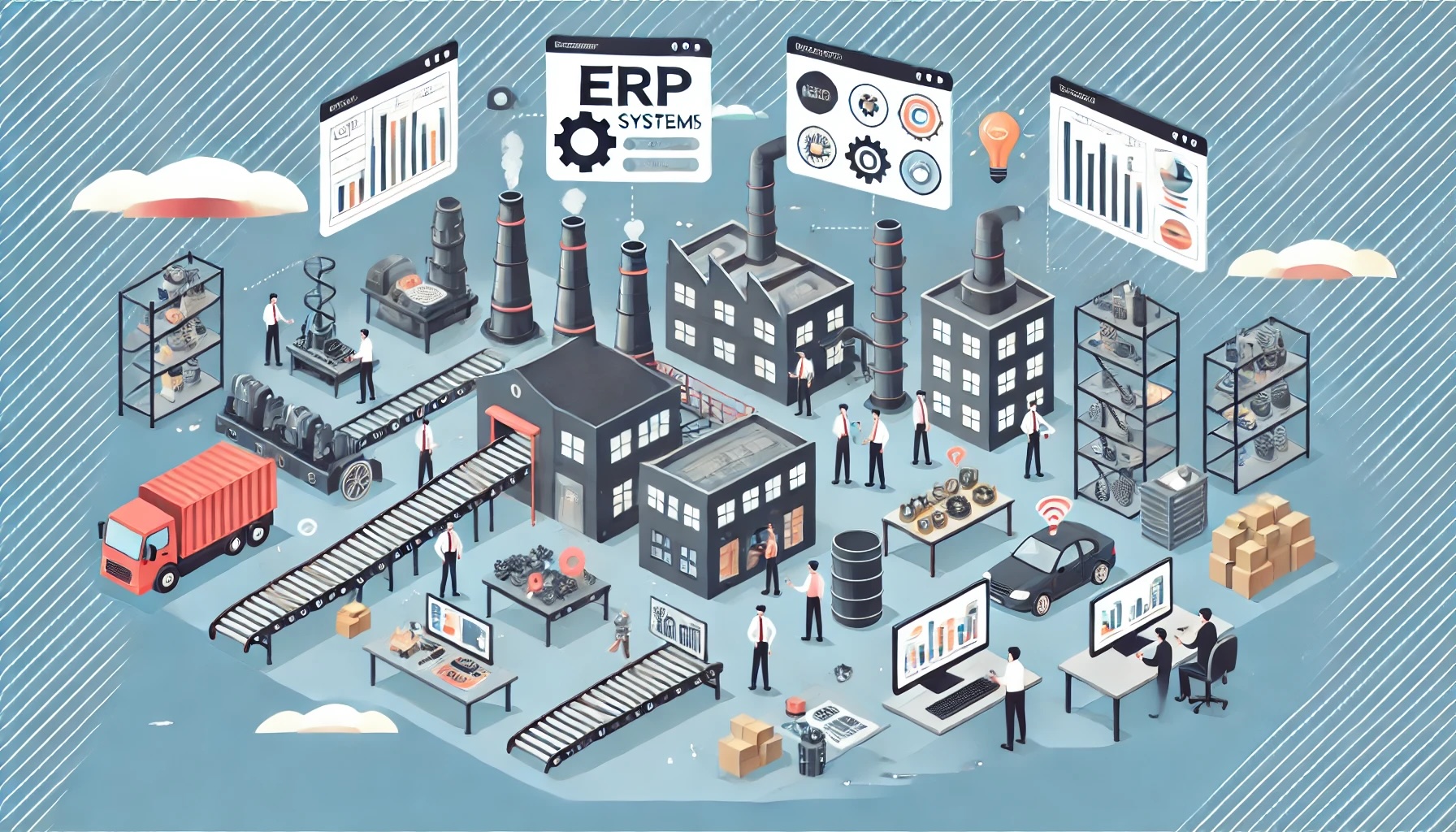Top 10 Most Popular ERP Systems: Choosing the Best for Your Business

In today’s rapidly evolving business landscape, choosing the right Enterprise Resource Planning (ERP) system is crucial for streamlining operations, improving efficiency, and gaining a competitive edge. This blog will explore the most popular ERP systems currently available, helping you make an informed decision for your business.
Why Choosing the Right ERP System Matters
Selecting an ERP system is a significant investment of time and resources. The right ERP can integrate various functions across your business, from accounting and human resources to inventory and customer relationship management. By centralizing data and processes, businesses can enhance productivity, reduce costs, and improve decision-making.
The Most Popular ERP Systems
1. SAP S/4HANA
Overview: SAP S/4HANA is one of the leading ERP systems globally, known for its advanced in-memory database technology. It offers real-time analytics and integration across various business processes.
Key Features:
- Real-time data processing and analytics
- Comprehensive modules for finance, supply chain, and human resources
- Integration with other SAP products and third-party applications
- Scalable and flexible deployment options (on-premise, cloud, or hybrid)
Why It’s Popular: SAP S/4HANA is favored by large enterprises due to its robust functionality and ability to handle complex business processes. Its real-time analytics capability is a game-changer for businesses needing immediate insights.
2. Oracle ERP Cloud
Overview: Oracle ERP Cloud is a comprehensive, cloud-based solution that provides a wide range of functionalities, including financial management, procurement, project management, and risk management.
Key Features:
- Advanced financial management and reporting tools
- Integrated suite for procurement and project management
- Embedded AI and machine learning for predictive analytics
- Highly secure and scalable cloud infrastructure
Why It’s Popular: Oracle ERP Cloud is renowned for its flexibility and scalability, making it a top choice for businesses of all sizes. Its advanced analytics and AI capabilities offer significant advantages in forecasting and strategic planning.
3. Microsoft Dynamics 365
Overview: Microsoft Dynamics 365 combines ERP and Customer Relationship Management (CRM) functionalities into a single solution. It seamlessly integrates with other Microsoft products like Office 365 and Azure.
Key Features:
- Unified platform for ERP and CRM
- Integration with Microsoft Office 365 and Azure
- Customizable modules for finance, sales, and operations
- AI-driven insights and business intelligence tools
Why It’s Popular: Microsoft Dynamics 365 is popular among small to medium-sized enterprises due to its user-friendly interface and seamless integration with other Microsoft products. Its modular approach allows businesses to start with what they need and scale as they grow.
4. Infor CloudSuite
Overview: Infor CloudSuite offers industry-specific ERP solutions, catering to sectors such as manufacturing, healthcare, and retail. It is known for its user-friendly interface and industry-specific capabilities.
Key Features:
- Industry-specific modules and functionalities
- User-friendly interface with minimal training required
- Cloud-based for easy access and scalability
- Advanced analytics and reporting tools
Why It’s Popular: Infor CloudSuite’s industry-specific focus makes it a preferred choice for businesses looking for tailored solutions. Its ease of use and quick deployment are additional benefits that contribute to its popularity.
5. NetSuite ERP
Overview: NetSuite ERP, a product of Oracle, is a cloud-based ERP solution designed for growing businesses. It offers a range of functionalities, including financial management, CRM, and e-commerce.
Key Features:
- Comprehensive financial management and accounting
- Integrated CRM and e-commerce capabilities
- Cloud-based for accessibility and scalability
- Real-time visibility and analytics
Why It’s Popular: NetSuite ERP is particularly popular among small to mid-sized businesses due to its affordability and comprehensive suite of tools. Its cloud-based nature ensures that businesses can scale and adapt quickly.
6. Epicor ERP
Overview: Epicor ERP is designed primarily for manufacturing and distribution industries. It offers robust tools to manage production, supply chain, and financials.
Key Features:
- Advanced manufacturing and supply chain management
- Real-time analytics and reporting
- Customizable to fit specific business needs
- Cloud and on-premise deployment options
Why It’s Popular: Epicor ERP is favored by manufacturing and distribution companies due to its industry-specific functionalities and ease of customization. Its robust analytics and reporting tools help businesses optimize their operations.
7. Sage X3
Overview: Sage X3 is an ERP solution that caters to medium-sized businesses across various industries. It offers comprehensive modules for finance, supply chain, and production management.
Key Features:
- Streamlined financial management and reporting
- Advanced supply chain and production capabilities
- User-friendly interface with mobile access
- Cloud and on-premise deployment options
Why It’s Popular: Sage X3 is popular for its ease of use and comprehensive suite of features tailored for mid-sized businesses. Its flexibility and scalability make it a strong contender in the ERP market.
8. Odoo
Overview: Odoo is an open-source ERP solution that offers a wide range of integrated business applications, including CRM, e-commerce, accounting, inventory, and project management.
Key Features:
- Modular approach with over 10,000 apps
- Open-source and highly customizable
- User-friendly interface
- Cloud and on-premise deployment options
Why It’s Popular: Odoo is favored by small to medium-sized businesses for its flexibility, affordability, and extensive range of modules. Its open-source nature allows for high customization to fit specific business needs.
9. Acumatica
Overview: Acumatica is a cloud-based ERP solution designed for small and mid-sized businesses. It offers a wide range of functionalities, including financials, distribution, project accounting, and CRM.
Key Features:
- Comprehensive financial and distribution management
- Cloud-based for accessibility and scalability
- Real-time visibility and analytics
- Integrated CRM and project accounting
Why It’s Popular: Acumatica’s cloud-based platform and comprehensive features make it a popular choice for growing businesses. Its real-time analytics and ease of integration with other applications are significant advantages.
10. IFS Applications
Overview: IFS Applications is a flexible ERP solution designed for industries such as aerospace, defense, automotive, and manufacturing. It offers a wide range of functionalities to manage complex business processes.
Key Features:
- Industry-specific modules
- Advanced project and asset management
- Real-time analytics and reporting
- Cloud and on-premise deployment options
Why It’s Popular: IFS Applications is popular among industries with complex business processes due to its robust functionality and industry-specific modules. Its flexibility and real-time analytics are highly valued by users.
Conclusion
Choosing the right ERP system is vital for the success and growth of any business. The most popular ERP systems like SAP S/4HANA, Oracle ERP Cloud, Microsoft Dynamics 365, Infor CloudSuite, NetSuite ERP, Epicor ERP, Sage X3, Odoo, Acumatica, and IFS Applications offer robust functionalities, scalability, and integration capabilities that cater to various business needs. Assessing your business requirements and future growth plans will help in selecting the most suitable ERP system.
By investing in a popular and reliable ERP system, businesses can streamline their operations, improve efficiency, and stay ahead in the competitive market.
To compare these ERP solutions and many more, you can use our new AI-powered Compare ERP tool. It’s free to use and you get a guaranteed discount on your first year’s licence fees with a referral from Compare ERP.









